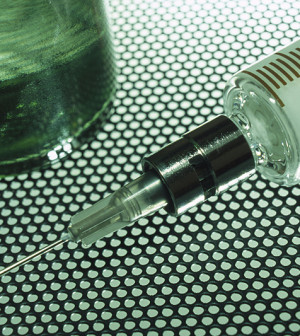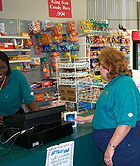- Double Mastectomy May Offer No Survival Benefit to Women With Breast Cancer
- Toxic Lead Found in Cinnamon Product, FDA Says
- Certain Abbott Blood Sugar Monitors May Give Incorrect Readings
- Athletes Can Expect High Ozone, Pollen Counts for Paris Olympics
- Fake Oxycontin Pills Widespread and Potentially Deadly: Report
- Shingles Vaccine Could Lower Dementia Risk
- Your Odds for Accidental Gun Death Rise Greatly in Certain States
- Kids From Poorer Families Less Likely to Survive Cancer
- Tough Workouts Won’t Trigger Cardiac Arrest in Folks With Long QT Syndrome
- At-Home Colon Cancer Test Can Save Lives
Food Price Hikes May Affect Those With Type 2 Diabetes


Food prices are linked to blood sugar levels in people with type 2 diabetes, a new study suggests.
To reach this conclusion, researchers from the U.S. Department of Agriculture (USDA) merged information from two giant studies.
From the first study, the National Health and Nutrition Examination Survey (NHANES), they gathered blood sugar measures of about 2,400 adults who met a definition of type 2 diabetes.
They then compared those levels to average grocery prices over the previous three months in 35 markets around the United States. Those prices came from the Quarterly Food-at-Home Price Database.
The result? As the costs of healthy foods like fruits, vegetables and low-fat dairy products climbed, so did blood sugar levels. The reverse was true for unhealthy foods. Falling prices for sugar, saturated fat and total calories were tied to higher blood sugar levels in people with diabetes. Those relationships were strongest for low-income consumers.
“Most likely, it’s because people eat less produce and switch to products that are less healthy,” said study author Ilya Rahkovsky, an economist with the USDA’s Economic Research Service in Washington, D.C.
The study is published online in the Feb. 13 issue of the American Journal of Public Health.
A December study from the Harvard School of Public Health estimated that healthy eating costs the average person about $1.50 per day more than unhealthy eating.
That may not be such a stretch for a middle-class family. But experts say that kind of price hike may prohibitive for the poor, forcing them to swap fruits, vegetables and lean proteins for more processed and junk foods, which tend to be higher in fat, added sugar and calories.
The new study found that for every increase of roughly 10 cents per pound in the cost of produce, fasting blood sugar climbed 20 milligrams per deciliter (mg/dL), or about 13 percent of the average fasting glucose level in the study, which was 162 mg/dL.
Every roughly 14-cent increase in a pound of low-fat dairy was tied to a 9 mg/dL increase in fasting blood sugar, about 6 percent of the average level.
While the study found an association between food prices and blood sugar levels in those with type 2 diabetes, it did not establish a cause-and-effect link.
“Healthy foods are more expensive, and being forced to purchase unhealthy foods, maybe for economic reasons, does have health consequences,” said Adam Drewnowski, director of the nutritional sciences program at the University of Washington, in Seattle. He was not involved in the research.
“Instead of merely advising people to consume expensive foods for better health, we ought to pay more attention to prices,” he said.
More information
Visit the American Diabetes Association for a low-cost eating plan for diabetes.
Source: HealthDay
Copyright © 2024 HealthDay. All rights reserved.










